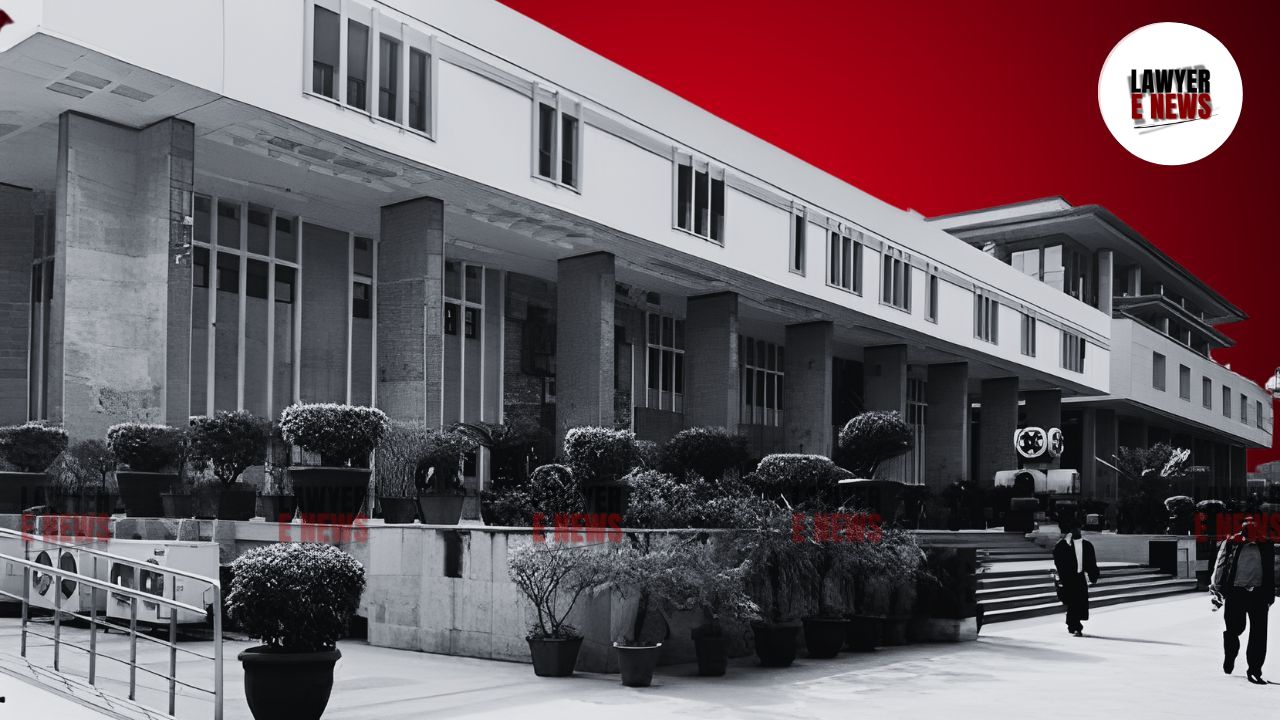-
by sayum
14 February 2026 2:22 PM



High Court dismisses petitions, confirms trustees' accountability for dishonoured cheques under Section 138 of the NI Act. The Delhi High Court has dismissed petitions filed by trustees of the Presidium Eduvision Trust, challenging their summoning in multiple cheque bounce cases. Justice Navin Chawla's judgment on May 15, 2024, emphasized that notices addressed to the Trust are sufficient for proceeding against the trustees under Section 138 of the Negotiable Instruments Act, 1881.
The case revolves around multiple complaints filed by Shrichand Hemnani and other respondents against Mother's Pride Punjabi Bagh and Presidium Eduvision Trust, along with its trustees. The respondents alleged that in December 2014, they extended loans to the accused based on assurances and representations made by the trustees regarding their affiliations with Mother’s Pride Educational Institute Pvt. Ltd. The loans were to accrue interest at 19.5% per annum. Until June 2018, the accused paid the interest, but defaulted thereafter. Subsequently, cheques issued by the accused for loan repayment were dishonoured due to insufficient funds. Legal notices issued on January 28, 2019, demanding payment remained unaddressed, leading to the filing of the complaints under Section 138 of the NI Act.
The court rejected the petitioners' argument that the demand notice must be individually addressed to each trustee. Justice Chawla noted, “The notice having been served on the Trust through its Trustees, all the Trustees are deemed to have been duly served with the legal/demand notice(s), thereby meeting the requirement of Proviso (b) to Section 138 of the NI Act.”
The court highlighted that the trustees, being in charge of and responsible for the conduct of the Trust’s business, are liable under Section 141 of the NI Act. The judgment cited the Supreme Court’s decision in Krishna Texport & Capital Markets Ltd. v. Ila A. Agrawal, which clarified that directors or trustees need not receive individual notices if the entity itself has been notified.
Justice Chawla emphasized that vicarious liability under Section 141 is created to ensure that those managing the affairs of a corporate entity are held accountable. The judgment stated, “Section 141 states that where the offence under Section 138 is committed by a company, every person responsible to the company for the conduct of its business shall be deemed to be guilty of the offence.”
In a significant remark, Justice Chawla asserted, “The opportunity to the ‘drawer’ company is considered good enough for those who are in charge of the affairs of such company. If it is their case that the offence was committed without their knowledge, it would be a matter of defence to be considered at the appropriate stage in the trial.”
The Delhi High Court’s dismissal of the petitions underscores the accountability of trustees in financial misconduct cases involving dishonoured cheques. By affirming the trial court’s summoning of the trustees, the judgment reinforces the legal framework ensuring that those responsible for the conduct of a trust’s business cannot evade liability. This decision is expected to have significant implications for future cases involving similar issues under the NI Act.
Date of Decision: May 15, 2024
Harpreet Sahni & Anr. vs. Shrichand Hemnani & Ors.
